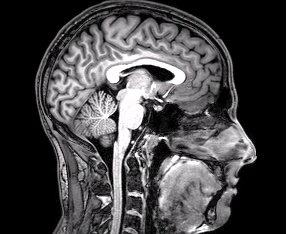Major Flaws Found in AI Models for Social Media Depression Detection

In a significant revelation for mental health research, a systematic review conducted by graduate students from Northeastern University has uncovered critical biases and methodological flaws in artificial intelligence (AI) models used to detect depression on social media platforms. The study, spearheaded by Yuchen Cao and Xiaorui Shen, analyzed AI applications in mental health, particularly in the wake of the COVID-19 pandemic, and was published in the Journal of Behavioral Data Science on July 2, 2025.
Social media platforms such as Twitter, Facebook, and Reddit are increasingly utilized for their vast repositories of user-generated content, which researchers leverage to train AI tools aimed at identifying emotional states and mental health conditions. However, the Northeastern review, which scrutinized 47 studies published since 2010, found that many of these models were inadequately developed and lacked the scientific rigor necessary for effective real-world application.
Cao, now a software engineer at Meta, stated, "We wanted to see how machine learning or AI or deep learning models were being used for research in this field." The findings point to a concerning trend: many studies were authored by professionals in medicine or psychology rather than computer science, raising doubts about the technical validity of the AI methodologies employed.
The research team examined hundreds of academic papers and identified several alarming trends. For instance, only 28% of the studies adequately adjusted hyperparameters, which are essential settings that influence how models learn from data. Additionally, around 17% of the studies failed to properly divide their data into distinct training, validation, and test sets, which heightens the risk of overfitting—a phenomenon where a model performs well on training data but poorly on new, unseen data.
Moreover, many studies relied solely on accuracy as a performance metric, despite working with imbalanced datasets that could obscure the detection of users exhibiting signs of depression. Shen, who also works at Meta, remarked, "There are some constants or basic standards, which all computer scientists know, like, ‘Before you do A, you should do B,’ which will give you a good result. But that isn’t something everyone outside of this field knows, and it may lead to bad results or inaccuracy."
The research also highlighted significant data biases. X (formerly Twitter) was the most commonly utilized platform, appearing in 32 studies, followed by Reddit and Facebook. Notably, only eight studies utilized data from multiple platforms, and approximately 90% of the analyzed posts were in English, predominantly sourced from users in the U.S. and Europe. These limitations restrict the generalizability of the findings and fail to represent the global diversity of social media users.
Additionally, the challenge of linguistic nuance emerged as a critical issue. The review found that only 23% of the studies adequately addressed how they managed negations and sarcasm, both of which are crucial for accurate sentiment analysis and depression detection. The authors applied the PROBAST tool to evaluate the transparency of reporting in the studies, discovering that many lacked crucial details regarding dataset divisions and hyperparameter settings, thereby complicating validation and reproducibility efforts.
Looking ahead, Cao and Shen are preparing to publish follow-up papers utilizing real-world data to test and refine these models. Cao emphasized the need for creating accessible resources, such as tutorials or wikis, to enhance collaboration and understanding within the field, as many researchers may lack the resources or expertise to properly tune open-source models.
The team’s findings, set to be presented at the International Society for Data Science and Analytics annual meeting in Washington, D.C., underscore the urgent need for rigorous standards in AI applications for mental health research. As AI continues to evolve, ensuring the reliability and validity of these models will be paramount for their successful integration into mental health diagnostics and treatment.
In conclusion, the Northeastern study serves as a critical wake-up call for researchers and developers in the mental health field, highlighting the necessity for interdisciplinary collaboration and methodological rigor in AI research to effectively address the complexities of mental health issues in the digital age.
Advertisement
Tags
Advertisement





